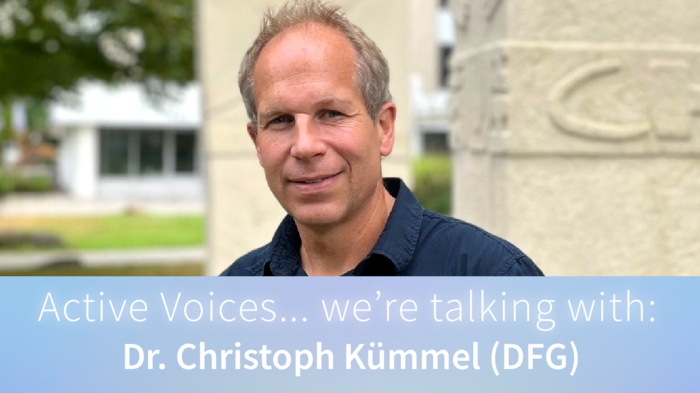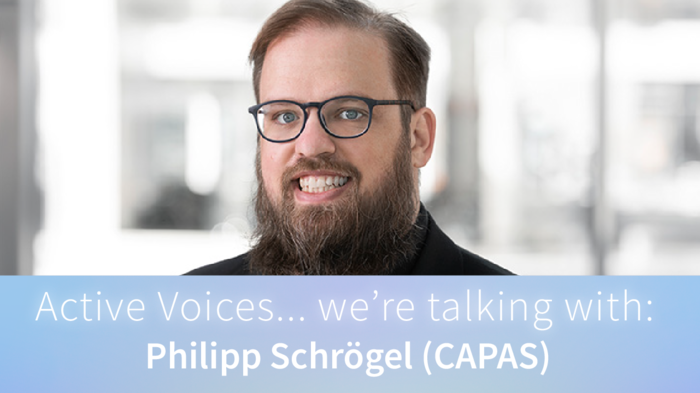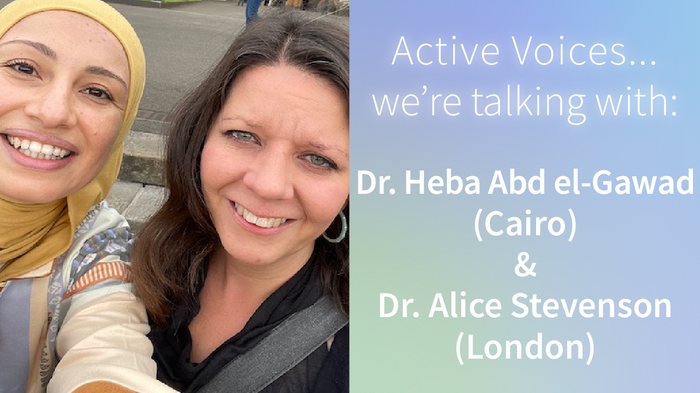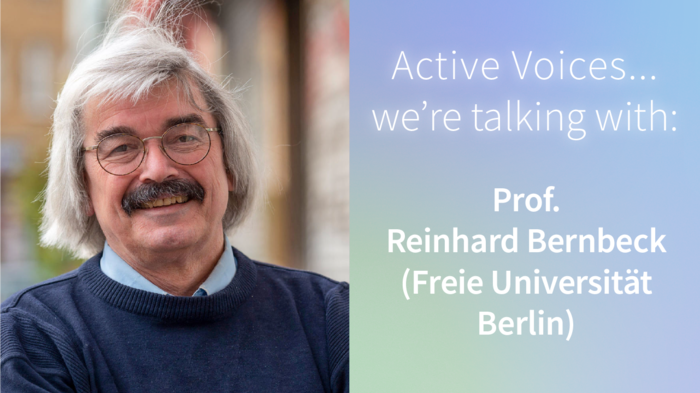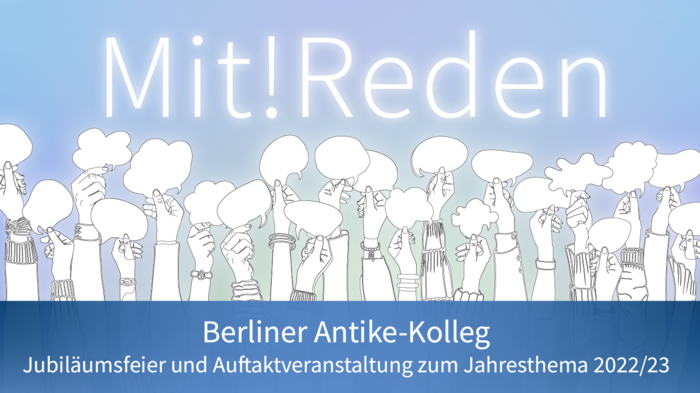In 2022, the Berliner Antike-Kolleg (BAK) is reaching out to the collaborative ancient studies research community in Berlin and Brandenburg with an annual theme for the first time.
In doing so, the BAK is responding to a general trend, one that is also reflected in a growing number of calls for proposals and funding formats: the increasingly widespread demand for greater cooperation, transparency and participation in all fields of research.
Projects
Interviews and blog posts
Events and cooperations
As part of its Science Year 2022 initiative, Germany’s Federal Ministry of Education and Research has invited all members of the public to frame questions they would like to pose to researchers. The initiative is intended to give rise to a mutually enriching process: its aim is "to strengthen citizen participation in scientific and political development processes and open up new cutting-edge fields for research and research policy."
The Berlin University Alliance supports transdisciplinary research formats and calls specifically for them, most recently in the call for proposals for its Grand Challenge Initiative on Global Health. Transdisciplinarity is understood as an integrative and cooperative research approach requiring both partners from the sphere of research and academia and partners who are explicitly not part of that sphere. Ideally, the research questions should be oriented towards issues of relevance for society and should tackle problems in collaborative discourse among equal partners: "Transdisciplinarity aims at mutual learning". The BUA is also providing targeted support for innovative exchange formats in connection with its focus on knowledge exchange (science communication); here, the aim is "a multidirectional process through which scientific ideas and research results are carried outward and external perspectives and experiences flow back into research."
Transdisciplinarity is also an important component of the restructuring and transformational processes underway in tertiary education. The approach is at the centre of current epistemological debates (see, for instance, Handbuch transdisziplinäre Didaktik, open access).
In recognition of all this, BAK invites the ancient studies community to participate in the creative exploration of, and creative innovation in relation to its 2022/2023 annual theme: "Active Voices – Transdisciplinarity and Participation in Ancient Studies!
"Active Voices" is an appeal to join in on a conversation and enable other people to participate in it as well. How is ancient studies positioned with respect to this new form of transdisciplinarity? What does the call to integrate societal groups that are non-scientific and non-academic as research partners mean for the design of future research questions and projects? Which groups are to be addressed, and what are these groups asking ancient studies and/or what do they want from ancient studies? How does one find non-academic research partners and how does one go about designing collaborative research projects ensuring that researchers and groups and organisations from civil society and the political and business spheres engage together as equal partners? What cooperative research projects of this kind are already underway and what experiences are they able to share? In which areas does the greatest potential lie for pro-active attempts by ancient studies researchers and organisations wishing to propose themselves as transdisciplinary partners in research?






